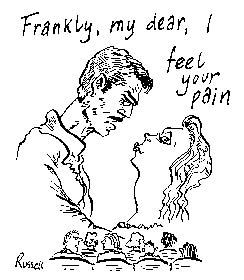The advert said: ‘1991 BMW 740i. Owned previously by an elderly couple. Fully serviced. Fully loaded. New front windscreen. This car is immaculate. Quick sale required.’ In other words — at least, one sincerely hoped so — the vendor was in dire financial difficulties and forced to let his cherished motor go for a song. There was a photograph of the car. It might have been taken professionally for a full-page advertisement in a lifestyle magazine. In gleaming gun-metal grey, the executive saloon appeared to be in showroom condition. It was parked on rose-coloured brick paving outside a steel-and-glass luxury apartment block. The background of flaming bougainvillea, with a glimpse between the palms of a colonial-style gable end, suggested the leafy suburb of a Caribbean tax haven. There it was: the car of my dreams, and at £595 ono just within my price range. I rang the number.
‘Hello,’ said a gravelly, world-weary, unmistakably south London voice. I asked was the vehicle still for sale. ‘Yeah,’ he said, ‘it’s still for sale.’ And is it located abroad? ‘I hope not,’ he said. ‘It was still parked outside my flat here in Lewisham when I came in from work an hour ago.’ In the photograph, the car looked in showroom condition, I said. It seemed almost too good to be true. Had he had any other inquirers? ‘None, mate.’ And was the car truly immaculate? ‘It’s absolutely mint. You won’t see a better one of these on the road. The only thing wrong with it is that people stare at you when you drive by. Other than that, it’s perfect. You’ll die when you see it.’ It seemed remarkably little money to ask for perfection, I said. Was there a reason for this? ‘I’m leaving the country,’ he said. ‘And I need the cash. Long story.’ Where was he going? ‘Cambodia.’ A long way away, then, I observed. ‘That is correct,’ he said.
Would he say the car was particularly fast? ‘What, a 740? It goes like s*** off a stick.’ And what was the fuel consumption? ‘Between 20 and 30 to the gallon. Depending.’ Is that miles or kilometres? ‘Yards,’ he said, ‘if you’re using it as a getaway car.’ What about the elderly couple, I said. They looked after the car very well, presumably? ‘Quakers, pal,’ he said. ‘Only used the car on Sundays to go to church.’
I liked this man and his all-bridges-burnt manner. I asked him a few more questions about the car and then we got on to life in general, beginning with a discussion about reaching that point in life when you begin to wonder whether the drink is only making matters worse. We spoke for over an hour. His conversation had the moral breadth one usually only associates with classics dons or armed robbers. I formed a picture in my mind’s eye of a retired villain from the Richardson era: overweight, greasy hair plastered over his bald patch, vicious, thoroughly dishonest, selfish, unshockable and, in the right mood and with the optimum amount of alcohol flowing in his veins, wonderful company.
Two days later I stepped off the train at Lewisham and he was leaning against a ticket machine looking nothing like the kind of person I’d imagined he was. The discrepancy between my supposition and the reality shocked me. He was not even a son of the Richardson generation, but a grandson, and there was nothing remotely recidivist in his manner or excessive about his weight. He was smart casual in a black polo shirt and designer jeans and he had a sharp haircut. I must be losing my grip, I thought to myself, to have got this person so wrong, to have allowed my imagination to run with such ludicrous, hackneyed stereotypes.
I bought the car. It was by no means immaculate. (So far the only stares I’ve had have been pitying ones.) The car wasn’t the one in the photograph, either. I think the photograph had been what it had appeared to be: a picture copied from a glossy advert in a magazine. But I’ve had the car a week and found no major faults so far — touch wood.
We did the paperwork at his flat. Afterwards, we chatted over a roll-up and a coffee about how south London has changed in recent years. As he handed over the key, he looked me squarely in the eye (for the first time, I remember thinking), and he said, ‘I married into a well-known criminal family, you know. The old order is still around. You just don’t notice it so much.’ So although the car was initially a disappointment, I drove away feeling glad that my instinct for placing people, although not immaculate, was still functioning.







Comments